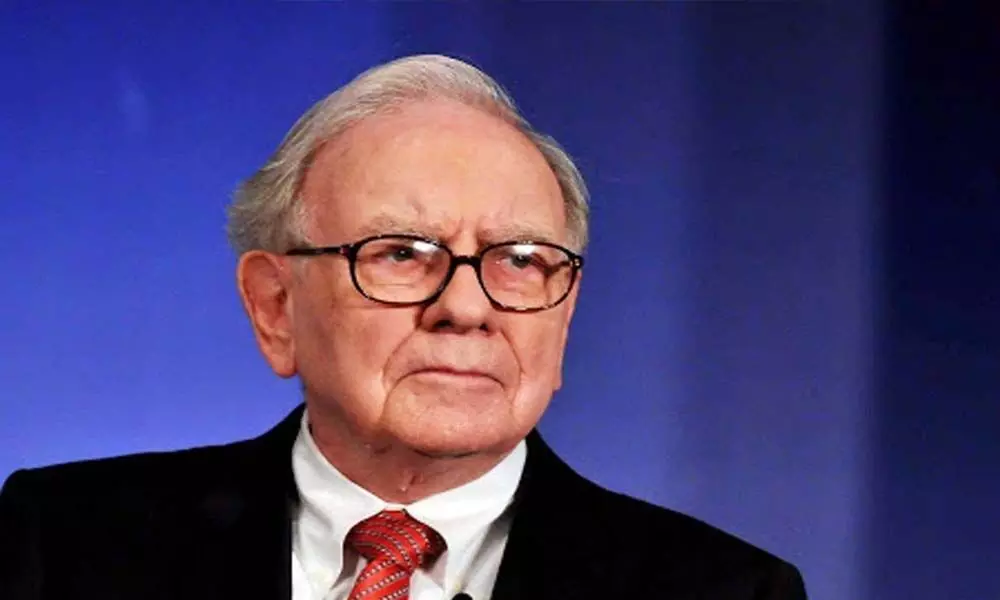How Warren Buffett's bet on China's BYD paying off big
The value of Berkshire Hathaway Inc’s holdings in BYD Co Ltd, one of China’s oldest makers of cars and automotive batteries, has skyrocketed this year
image for illustrative purpose

Warren Buffett gets lots of investments right with his patient and deliberate buy-and-hold strategy. And it's becoming apparent that he's doing it again with electric vehicles. For investors pouring money into the technology, it would be wise to consider how the Sage of Omaha has looked into the future of the sector.
The value of Berkshire Hathaway Inc's holdings in BYD Co Ltd, one of China's oldest makers of cars and automotive batteries, has skyrocketed this year: BYD's share price is up almost 30 per cent. Buffett has backed BYD for over a decade, holding around 22 per cent in the Hong Kong-listed company, which now sits on a market capitalization of over HK$915.6 billion ($117.6 billion). That's more than investor darling Nio Inc, the new-generation Chinese automaker listed in New York.
So how is that different from the rest of the EV universe, which just keeps on surging?
BYD is more than just another upstart trying to take on Tesla Inc. It is getting closer to mastering the right technology for EV batteries - the core of the electric car that accounts for almost 50 per cent of the price and is crucial to widespread EV adoption. And that's what Berkshire has honed in on.
Longtime Buffett partner Charlie Munger had spotted the genius of Wang Chuanfu, the chemist and researcher behind BYD, leading to Berkshire taking a 10 per cent stake for around $230 million in the company in 2008. In a 2009 Fortune magazine cover story, Munger described Wang as "a combination of Thomas Edison and [General Electric's] Jack Welch - something like Edison in solving technical problems, and something like Welch in getting done what he needs to do. I have never seen anything like it."
That's turned out to be quite a prescient call. Wang understands batteries: Getting the chemistry right would determine how well cars equipped with these powertrains would and could do. It's given his company a leg-up as the rest of the sector stumbles through recalls and battery fires. BYD electric cars are clunky and don't carry the techy-coolness of new generation cars like Nio Inc's or Tesla's Model X with its falcon wing doors. But it does have the right price and safe battery technology. It's now China's largest EV maker, selling more cars than the competition in the mainland.
BYD has doubled down on making affordable batteries at scale - and has bet on the technology to achieve that goal. At its 2020 annual results, the company said it would stop plans for nickel-cobalt-manganese battery adoption, which most car and battery makers are set on. Instead, BYD has turned all its attention to so-called lithium iron phosphate, or LFPs, for its so-called Blade battery, which was released early last year.
Wang's focus on LFPs is turning out to be a game-changer. It's cheaper and more readily usable. The chemistry is far more stable than the up-and-coming NCM type that promises to take cars hundreds of kilometers further but isn't as safe. Meanwhile, the flat Blade battery takes up less space and reduces the weight of the car, another problem automakers have had to contend with. BYD has managed to bring costs down by almost 30 per cent and reduce the number of parts while also boosting efficiency.
BYD commands almost 15 per cent of the battery market in China, behind Contemporary Amperex Technology Ltd. Globally, it could end up with a 3 per cent share in the electric vehicle market by 2025, according to an estimate by analysts at Goldman Sachs Group Inc BYD's battery deliveries - for its own cars and external sales - could reach 30 per cent of industry consumption, Goldman notes.
Carmakers too, are realizing this is the way forward. Or at least, until other options can be commercially produced that don't result in frequent battery fires. Tesla is testing BYD's Blade battery for its Model Y, according to reports in Chinese media. The likes of Volkswagen AG, for their part, want to make their own powertrains. Even for one of the world's largest carmakers, that is a challenging task unlikely to yield results any time soon.
Berkshire's recognition of Wang's expertise and the value of battery chemistry (much more than the rest of the car itself) has turned out to be a win - for now. If Wang and his company can stay ahead of the competition with evolving EV technology, BYD could be a model for investors to keep an eye on. That - more than the fascinating but distant plans of some carmakers - is the kind of realism that caught Buffett's eye. (Bloomberg)

